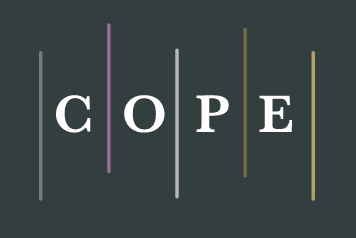The Necessity and Importance of Research and Its Role in Afghan Society
DOI:
https://doi.org/10.58355/competitive.v3i4.142Keywords:
Scientific research, economic development, Afghanistan, challenges, research infrastructureAbstract
This research examines the critical role of scientific research in Afghan society, highlighting its necessity for economic, social, and cultural development amid ongoing challenges such as war, poverty, and political instability. Utilizing a qualitative methodology, the study conducts semi-structured interviews with researchers, university professors, and policymakers to gather in-depth insights. Key findings reveal that scientific research significantly contributes to economic development by enhancing education quality, improving infrastructure, and fostering innovation. However, the study identifies substantial barriers to research advancement, including institutional, cultural, and financial constraints. The implications of these findings underscore the urgent need for increased investment in research infrastructure and support mechanisms to facilitate sustainable development and improve the quality of life in Afghanistan. By prioritizing research, the country can leverage knowledge to address its pressing challenges effectively.
Downloads
References
Alemi, Q., Panter-Brick, C., Oriya, S., Ahmady, M., Alimi, A. Q., Faiz, H., . . . Naseri, R. (2023). Afghan mental health and psychosocial well-being: thematic review of four decades of research and interventions. BJPsych open, 9(4), e125.
Ameri, H., Mahami‐Oskouei, M., Sharafi, S., Saadatjoo, S., Miri, M., & Arab‐Zozani, M. (2023). Investigating the strengths and weaknesses of online education during COVID‐19 pandemic from the perspective of professors and students of medical universities and proposing solutions: A qualitative study. Biochemistry and Molecular Biology Education, 51(1), 94-102.
Bai, A., Wu, C., & Yang, K. (2021). Evolution and features of China’s central government funding system for basic research. Frontiers in Research Metrics and Analytics, 6, 751497.
Ciocca Eller, C. (2024). Democratizing social scientists’ impact on federal policy: Using the evidence act to help government and ourselves. Proceedings of the National Academy of Sciences, 121(13), e2306890121.
Emami, Z., Hariri, N., Khamseh, M. E., & Nooshinfard, F. (2018). Mapping diabetes research in Middle Eastern countries during 2007-2013: A scientometric analysis. Medical journal of the Islamic Republic of Iran, 32, 84.
Essar, M. Y., Siddiqui, A., & Head, M. G. (2023). Infectious diseases in Afghanistan: Strategies for health system improvement. Health Science Reports, 6(12), e1775.
Fang, W., Liu, Z., & Putra, A. R. S. (2022). Role of research and development in green economic growth through renewable energy development: empirical evidence from South Asia. Renewable Energy, 194, 1142-1152.
Hindhede, A. L., & Aagaard-Hansen, J. (2017). Using social network analysis as a method to assess and strengthen participation in health promotion programs in vulnerable areas. Health promotion practice, 18(2), 175-183.
Igwe, P. A., Hack-Polay, D., Mendy, J., Fuller, T., & Lock, D. (2021). Improving higher education standards through reengineering in West African universities–A case study of Nigeria. Studies in Higher Education, 46(8), 1635-1648.
Mondal, S., Van Belle, S., Bhojani, U., Law, S., & Maioni, A. (2022). Policy processes in Multisectoral tobacco control in India: the role of institutional architecture, political engagement and legal interventions. International Journal of Health Policy and Management, 11(9), 1703.
Ooms, T., Klaser, K., & Ishkanian, A. (2023). The role of academia practice partnerships in the well-being economy: Retracing synergies between health and social sciences using bibliometric analysis. Health Policy, 104936.
Prado-Acebo, I., Cubero-Cardoso, J., Lu-Chau, T. A., & Eibes, G. (2024). Integral multi-valorization of agro-industrial wastes: A review. Waste Management, 183, 42-52.
Rahmani, H., Wafa, W., & Yar, F. G. M. (2021). The importance of public awareness in environmental protection: A case study in Paktika, Afghanistan. Nature Environment and Pollution Technology, 20(4), 1621-1626.
Schwengel, D. A., & Toy, S. (2019). Innovation in education research: Creation of an education research core. Anesthesia & Analgesia, 129(2), 520-525.
Snyder, J. M., Pawloski, J. A., & Poisson, L. M. (2020). Developing real-world evidence-ready datasets: time for clinician engagement. Current oncology reports, 22, 1-8.
Thomas, J., & Mantri, P. (2022). Design for financial sustainability. Patterns, 3(9).
Yar, F. G. M. (2024). Role of Climate Change in Afghanistan’s Geopolitical Power. Titian: Jurnal Ilmu Humaniora, 8(1), 1-15.
Yar, F. G. M., & Yasouri, M. (2024). Rural Development Challenges in Addition to Effective Solutions to Overcome Obstacles. Zhongguo Kuangye Daxue Xuebao, 29(3), 79-90.
Zhang, M., Hou, Q., & Zhu, T. (2023). A study on the control path of financial research resource allocation based on Rahman model. Heliyon, 9(4).
Downloads
Published
How to Cite
Issue
Section
License
Copyright (c) 2024 Fayaz Gul Mazloum Yar

This work is licensed under a Creative Commons Attribution 4.0 International License.

























